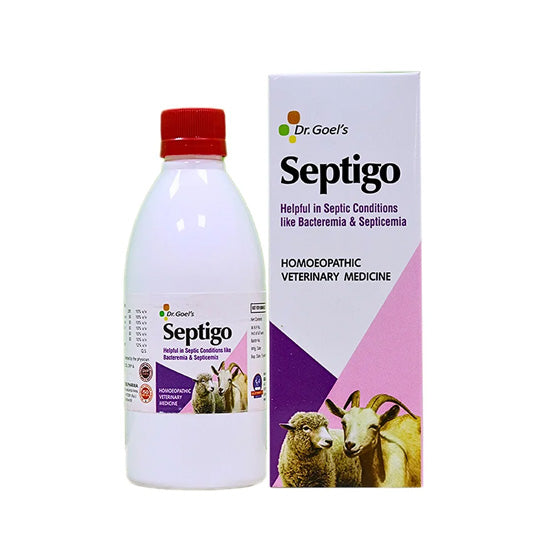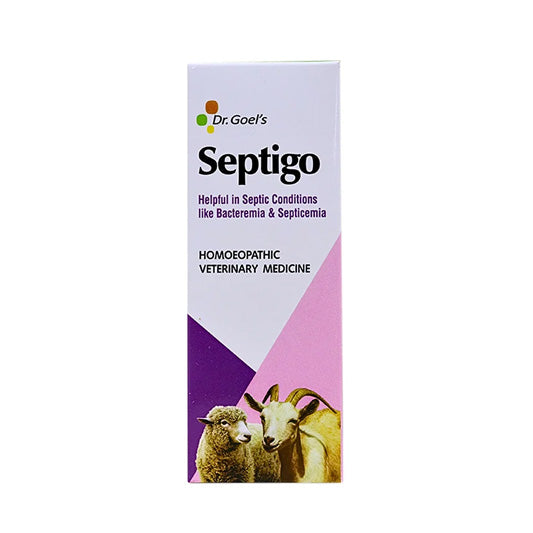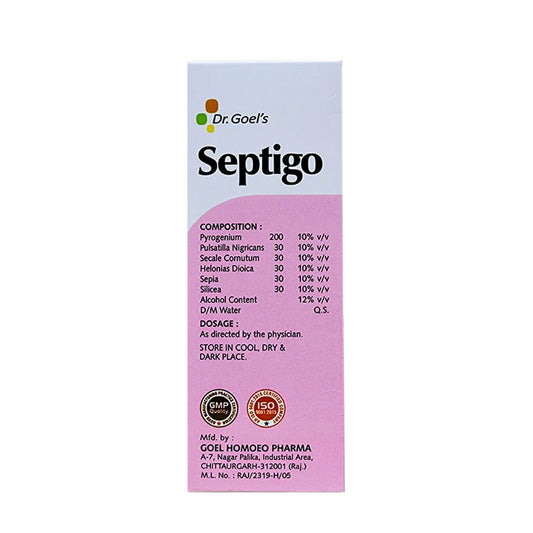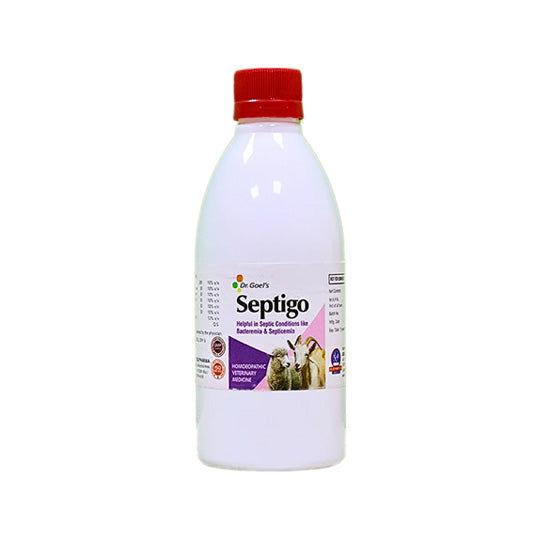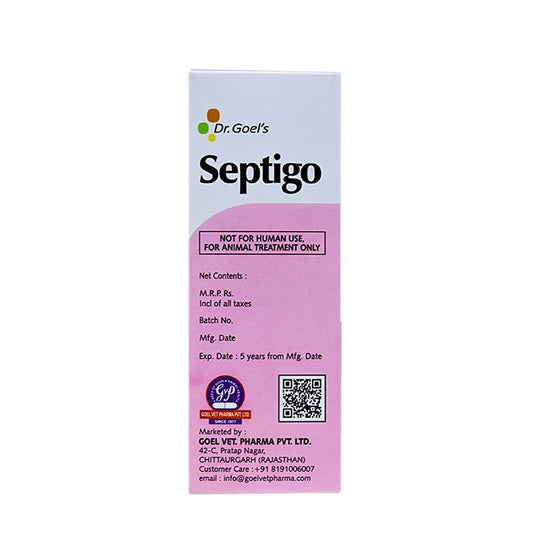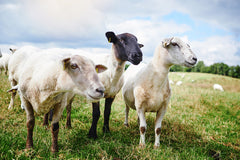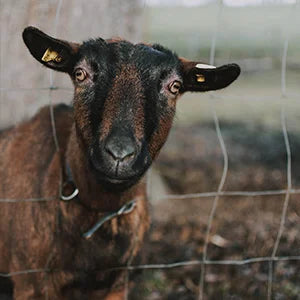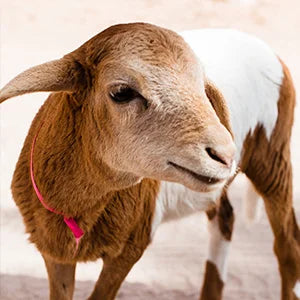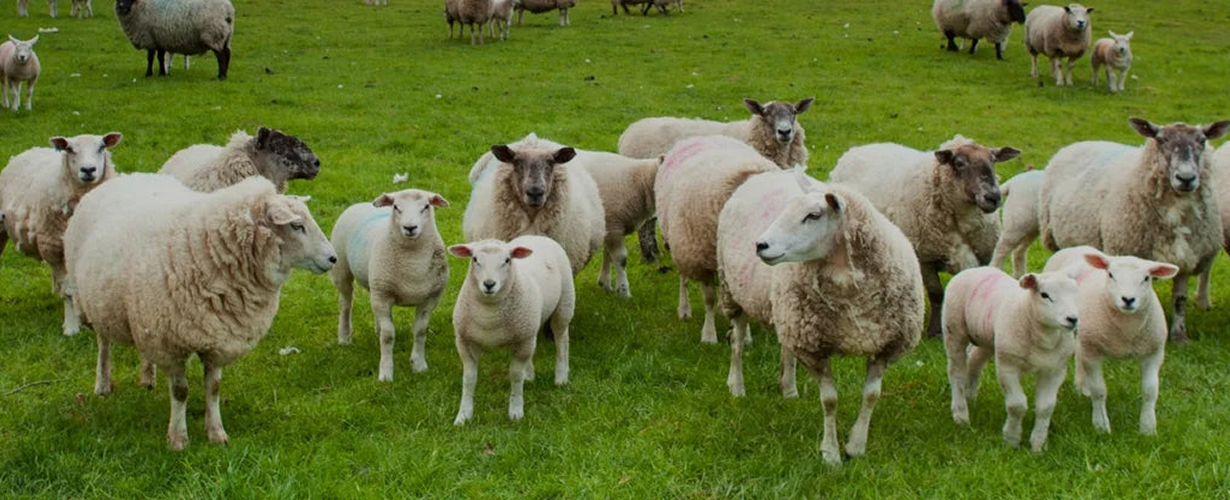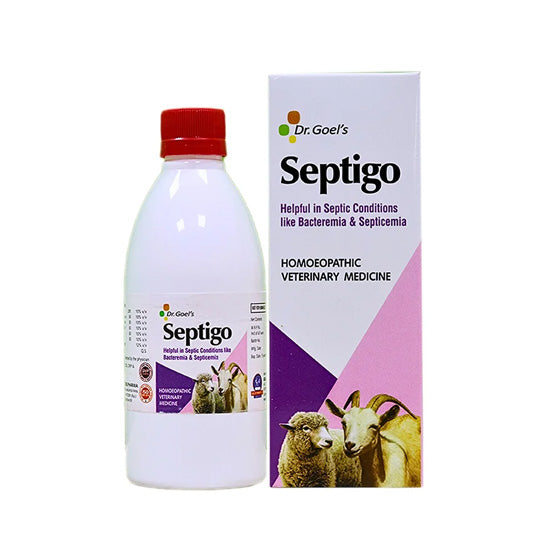Septic problems in sheep and goats are systemic infections resulting from factors like infections, injuries, or birthing complications. Symptoms include fever, lethargy, and loss of appetite. Swift veterinary attention with antibiotics and supportive care is vital. Preventive measures include maintaining proper hygiene, routine vaccinations, and regular health checks to minimize the risk of septic issues.
Common causes of Septic in sheep & Goat include:
-
Bacterial Infections
Sheep and goats are prone to mastitis, metritis, and foot rot, which, if untreated, can lead to systemic sepsis.
-
Puerperal Infections
Ewes and does face increased septicemia risk post-birthing due to retained placenta, uterine infections, or vaginal tears.
-
External Injuries
Wounds from fights, predator attacks, or accidents can lead to systemic infection if not promptly treated.
-
Hygiene Issues
Poor hygiene, overcrowding, and unsanitary conditions heighten the risk of various infections in sheep and goats, increasing the likelihood of septic conditions.
Tips for Prevention of septic problem in Cattle
To Preventing septic problems in cattle involves maintaining excellent hygiene, especially in barns and handling facilities. Regular post-calving health checks, proper nutrition, and prompt treatment of injuries and infections are crucial. Implementing vaccination programs against prevalent diseases contributes to overall herd health, minimizing the risk of bacterial infections and septic issues.
Symptoms of septic in sheep & Goat
-
Fever
An elevated body temperature is often one of the first signs of systemic infection.
-
Loss of Appetite
A decrease or complete loss of interest in eating or drinking.
-
Lethargy
Increased tiredness, weakness, and reduced activity levels.
-
Rapid Breathing and Heart Rate
Breathing and heart rates may increase as the body attempts to fight off the infection.
-
Discharge
Abnormal discharges from the eyes, nose, or genital tract can indicate an underlying infection.
-
Behavioral Changes
Changes in behavior, such as restlessness or isolation from the herd, might be observed.
-
Dehydration
Sunken eyes, dry mucous membranes, and decreased skin elasticity due to dehydration.
Trusted by Veterinarians
“As a veterinarian, I am thrilled to endorse Dr. Goel Vet Pharma’s homeopathic products for our furry friends. Their commitment to advancing homeopathic veterinary medicine is evident in the exceptional quality of their products. The innovative solutions they provide have significantly enhanced our ability to care for our animal patients, ensuring optimal health outcomes. I highly recommend Dr. Goel Vet Pharma’s products to pet parents for their unwavering dedication to the well-being of pet animals and the invaluable support they offer to the veterinary community.”
– Dr. Sakshi Sharma (B.V.sc. & A.H. M.V.Sc , NET)
Treat your Sheep and Goat from septic and related problem with Dr.Goel’s Septigo
SEPTIGO for sheep & Goat is a very useful homeopathic medicine to treat open wounds or ear infections, or any other conditions that can lead to sepsis. It is helpful in septic condition like bacteremia & septicemia.
